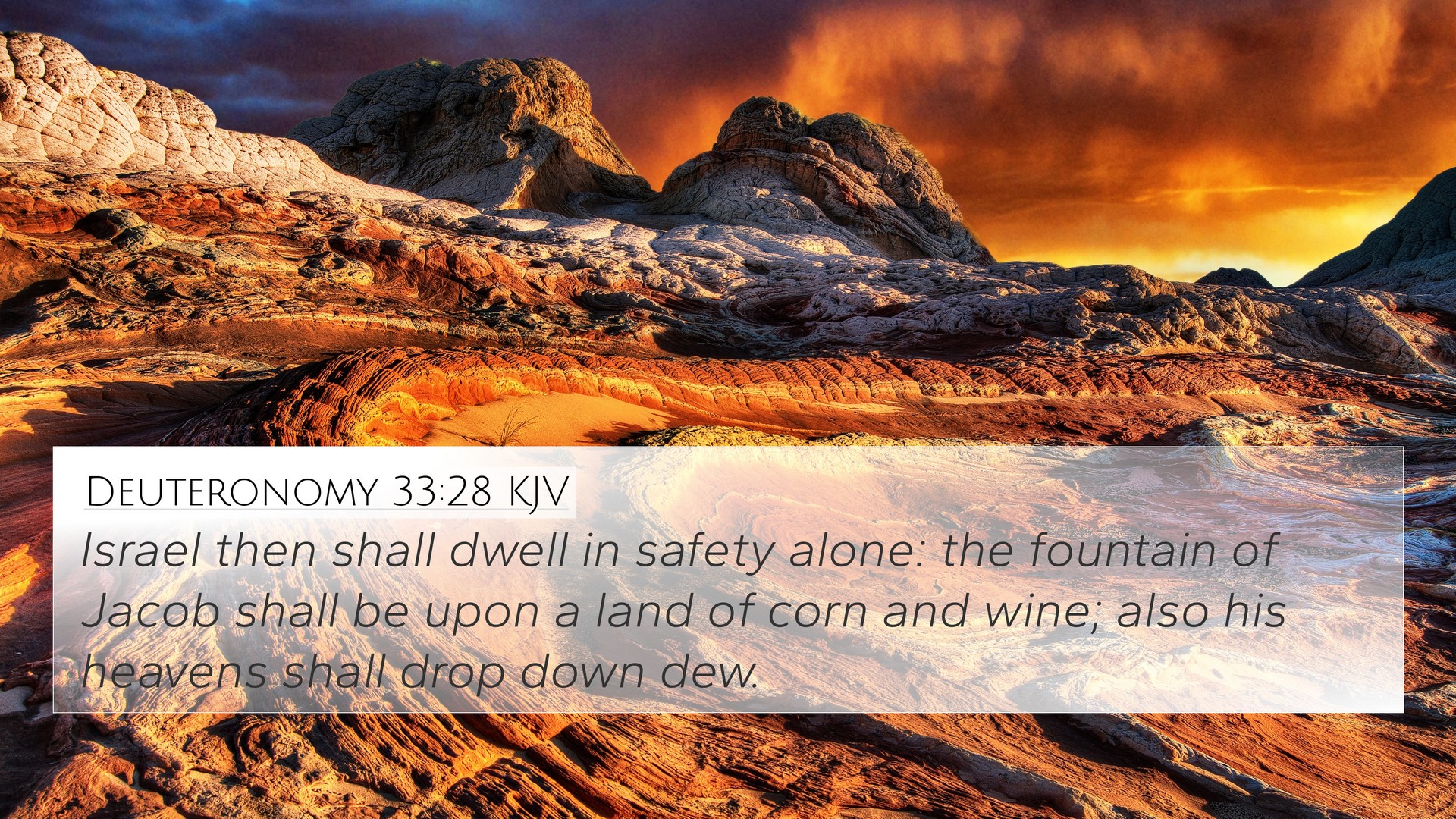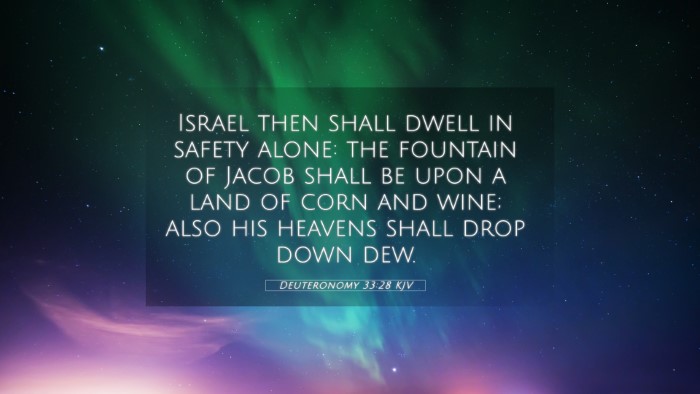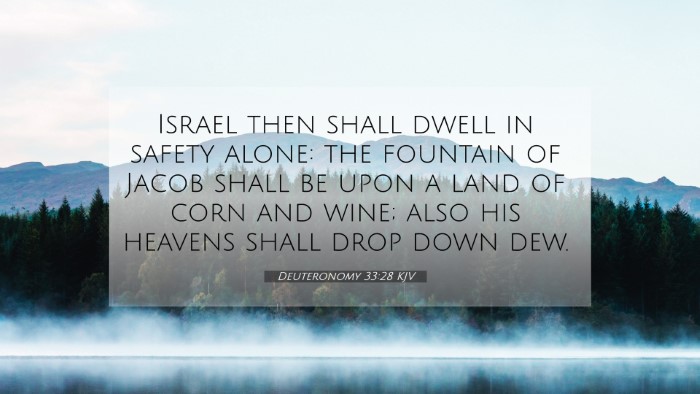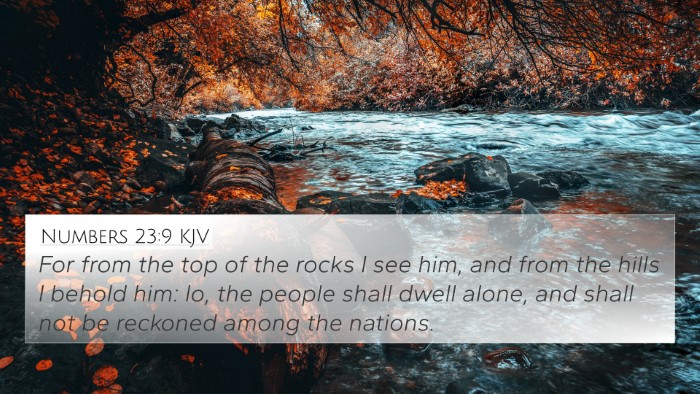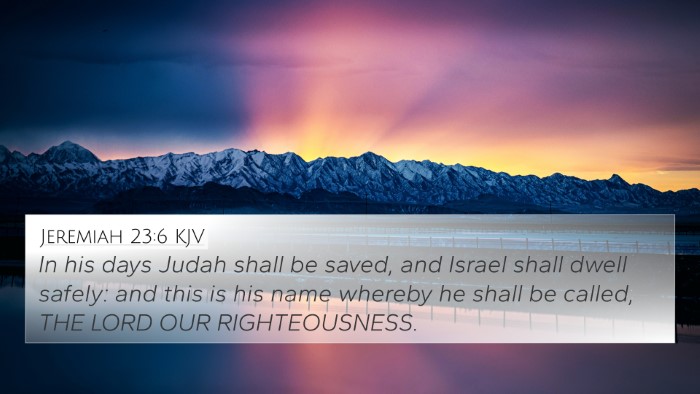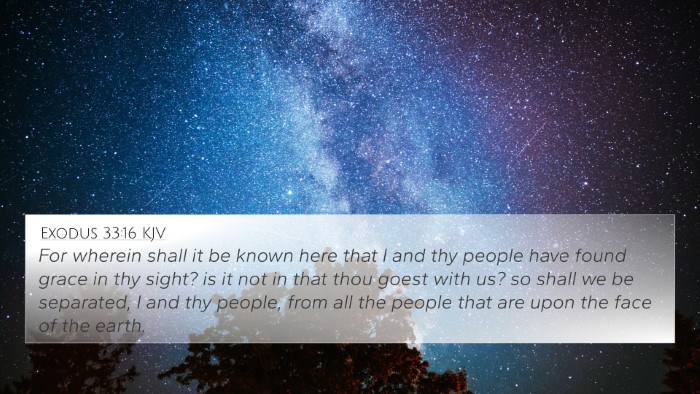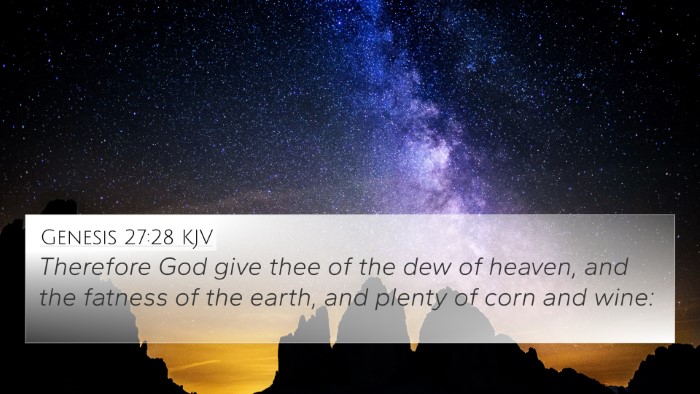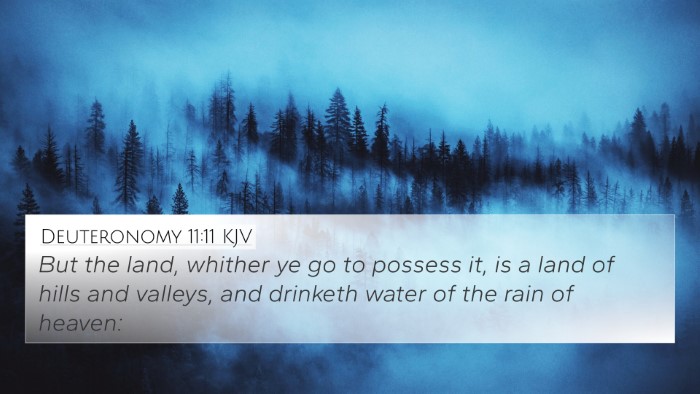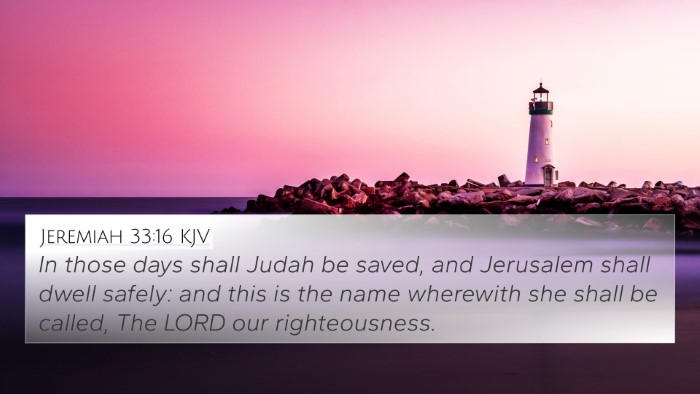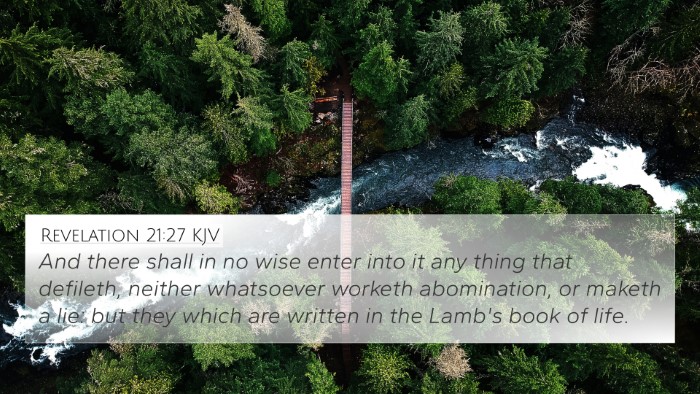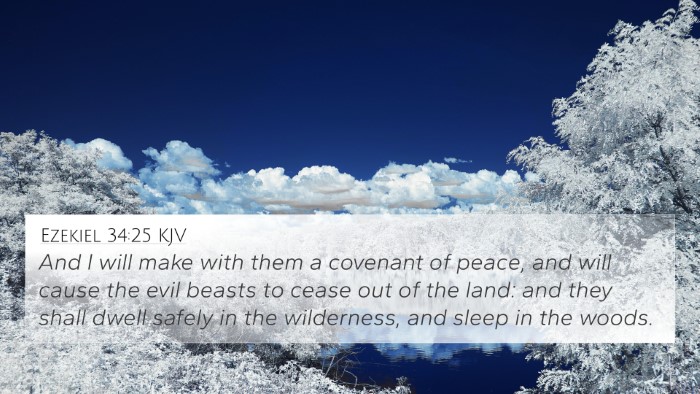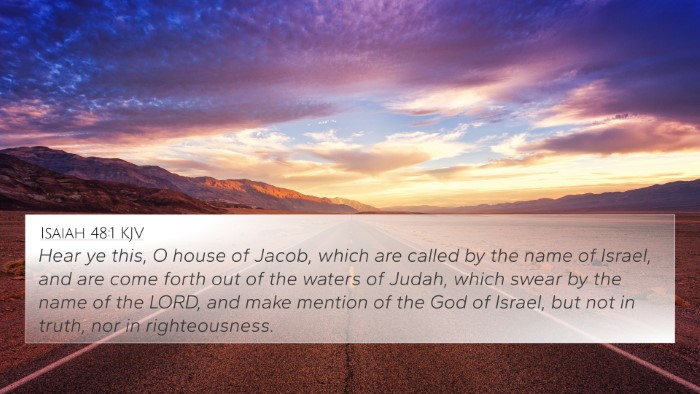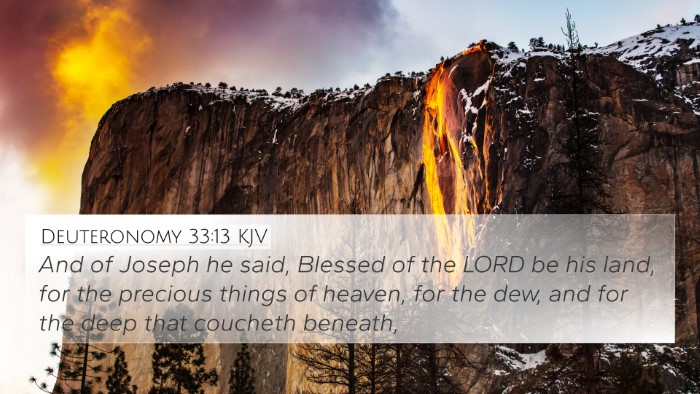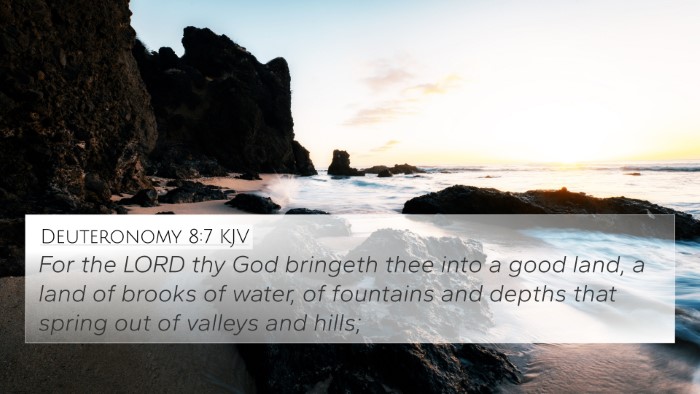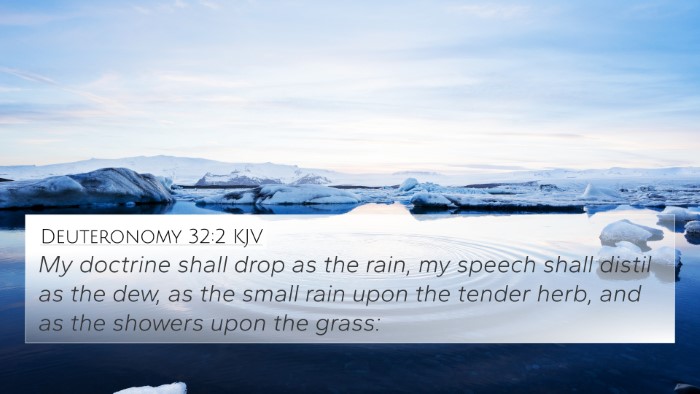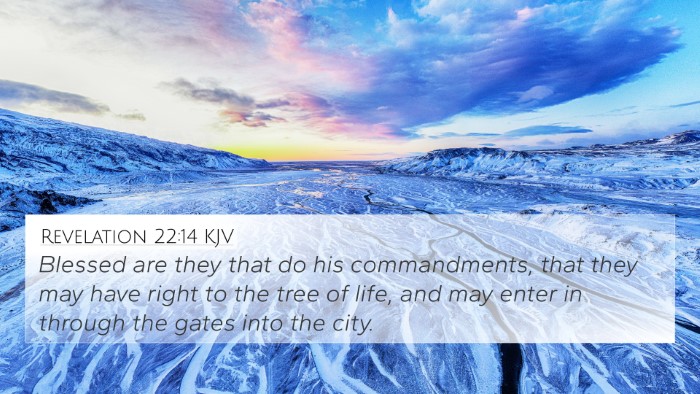Meaning and Interpretation of Deuteronomy 33:28
Verse Reference: Deuteronomy 33:28 - "And Israel dwells in safety, the fountain of Jacob alone, in a land of corn and wine; also his heavens drop down dew."
Overview
The verse serves as a concluding blessing from Moses to the tribes of Israel, conveying a picture of peace, provision, and divine favor. Through public domain commentaries, we can distill a deeper meaning related to the covenant relationship between God and His people.
Summary of Commentaries
-
Matthew Henry:
Henry emphasizes the security of Israel as a nation under divine protection. He highlights that Israel's safety is a consequence of God’s covenant and favor. The phrase "fountain of Jacob" points to the rich heritage and the blessings God promised to the descendants of Jacob, underlining the importance of agricultural abundance in their covenantal blessings.
-
Albert Barnes:
Barnes draws attention to the metaphor of abundance in "a land of corn and wine." He interprets this as a symbol of prosperity and the blessings associated with the Promised Land. The mention of dew suggests the continual blessing and sustenance from God, which is necessary for fruitful land.
-
Adam Clarke:
Clarke delves into the implications of the dew as a metaphor for divine grace, which sustains life. He notes how the verses call to mind the ideal conditions for a thriving nation and the faithfulness of God in providing for His people. Clarke also acknowledges the direct connection between geographic blessings and spiritual standing before God.
Key Themes and Insights
- Divine Protection: The notion that Israel exists in safety reflects God's ongoing protection over His chosen people.
- Covenant Blessings: The references to corn and wine indicate not only physical sustenance but a deeper symbolism of spiritual abundance that comes from a faithful relationship with God.
- Continuity of Provision: The presence of dew reinforces a theme of continuous grace and daily provision from God, reflecting His faithfulness and love.
Cross-References
This verse is thematically connected to several other Bible verses that highlight similar principles of divine governance and blessings:
- Psalm 65:9-11: Draws attention to God’s provision and the prosperity of the earth.
- Isaiah 32:16-18: Speaks of safety and peace flowing from God's righteousness.
- Deuteronomy 28:1-14: Lists blessings for obedience, echoing the themes of prosperity and protection.
- Exodus 33:14: God assures Moses of His presence and peace as a blessing to His people.
- Jeremiah 31:12: Prophecy concerning the return and prosperity of Israel, portraying a thriving nation.
- Ezekiel 34:26: Refers to God's provision of abundant blessings for His people.
- Psalm 3:5: Expresses the assurance of safety and the peace of God as support in times of trouble.
Using Cross-References for Deeper Understanding
The study of cross-references, such as the ones listed above, enhances our understanding of Scripture by revealing the interconnectedness of Biblical truths. To effectively utilize these references, one might consider employing the following methods:
- Bible Concordance: Use a concordance to find related passages that discuss themes of protection, blessing, and divine provision.
- Comparative Bible Study: Engage in comparative analysis of related verses to explore how different authors convey God's promises and character.
- Thematic Studies: Focus on specific themes, such as God's providence or covenantal blessings, and trace them through various books of the Bible.
Conclusion
Deuteronomy 33:28 serves as a fitting conclusion to God’s promised blessings for Israel. It encapsulates themes of divine protection, agricultural abundance, and continuous provision through the figure of dew. The insights from public domain commentaries expand our understanding and offer tools for deeper Bible study through methods of cross-referencing and thematic exploration.
